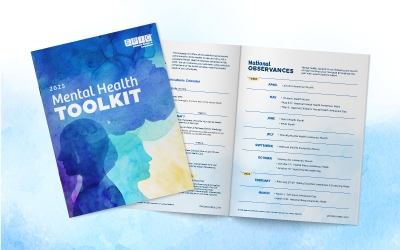Viewpoints from Ayana Collins
The sign in my neighbor’s yard says it best, “What a Week This Year Has Been.” So let’s take three deep cleansing breaths before we continue…
During the wild ride of 2020, companies have felt and responded to the effects of COVID-19 and are rising to the occasion to improve racial equality. Shifting daily operational policies, implementing paid leave benefits, all while having difficult conversations about racism, has not been easy. Still, I truly believe the hard work will yield great results for years to come.
As we move into employee benefits open enrollment season and decisions are being made for the year ahead, human resources leaders should do an audit and proactively make enhancements to their family benefits packages. Here are three questions to consider:
Does your program address racial disparities in maternity support?
A tough but important question. African American and Native American women are two to three times more likely to die from pregnancy-related complications compared to their Caucasian counterparts. There are many drivers involved in this reality, including implicit bias and structural racism, that affect how these women receive care in our healthcare system.
Organizations can do their part by providing access to racially and ethnically diverse providers, such as doulas, who can operate as patient advocates. Not all insurance companies cover the cost of a doula, so check with your insurer for their policies, and make sure your Health Savings Accounts (HSAs) and Flexible Spending Accounts (FSAs) include doulas. Provide communications to employees on the steps needed for reimbursement, such as a detailed invoice from the doula along with a Letter of Medical Necessity from the employee’s doctor.
Additionally, studies have shown pregnant African American women report higher levels of stress and anxiety during pregnancy. Make sure you frequently communicate any emotional support tools available to employees and highlight pregnancy support information in your current Employee Assistance Program (EAP).
Does your program provide both educational and financial support for expecting families?
Reports show that there is value in investing in healthy pregnancies. New mothers are the fastest-growing segment of the U.S. workforce, increasing by 80% in the past 20 years. Companies need to provide education and support services like health coaching and educational material to women and spouses considering starting a family. Use specific communications to encourage women to establish a relationship with a prenatal care provider to discuss their goals and concerns. Employers can also improve their employees’ odds of a healthy pregnancy by removing some financial barriers to fertility clinics with good outcomes.
Does your program provide ongoing support for parents?
Offering expanded benefits like flexible work hours, paid parental leave, and reimbursements on childcare or parenting classes gives employees peace of mind knowing that they can find a balance between family duties and work responsibilities, thus boosting engagement and productivity. My colleague, Claire Letourneau, will be diving into this topic in the coming weeks.
The EPIC Wellness & Health Management practice will continue to share ways to support the physical, mental and community wellbeing of your workforce in the new normal – see more of our recent posts. And EPIC has a dedicated coronavirus webpage with links to additional employer resources for employee benefits and risk management. Stay tuned for more, and stay well!
Check out our COVID-19 employer resources for employee benefits and risk management on the EPIC dedicated coronavirus webpage
See results from our In It Together COVID-19 pulse surveys by visiting epicbrokers.com/insights/preparing-for-the-new-normal
Related Content
Products
Employee Benefits Consulting
Our dedicated benefits team is focused on delivering better outcomes – to both your benefits program and ...
Products
Wellbeing & Health Management
Our consultants help you create a strategy around health management that will impact your culture and your ...
Products
Communications & Engagement
Our Communications & Engagement team develops effective campaigns that enhance workforce awareness and ...


